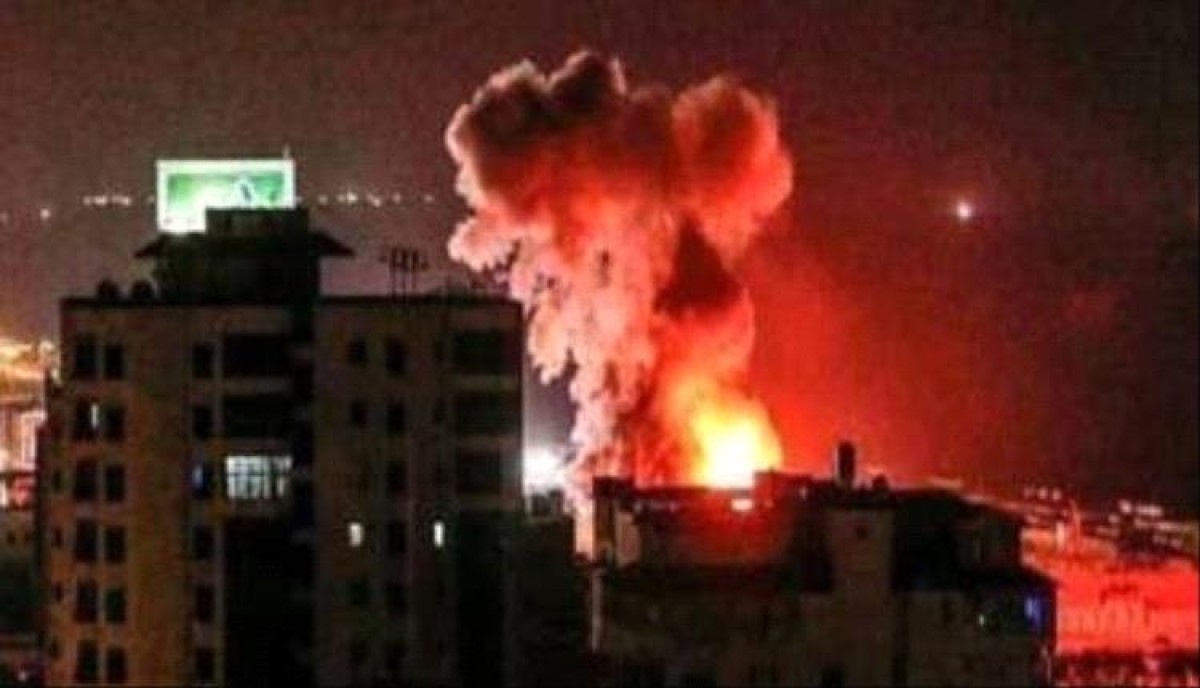The outcome of the violent Israeli raids on Sanaa and Hodeidah


After launching a missile from Yemen towards Tel Aviv in central Israel, Israeli warplanes launched several raids on sites in Sanaa and Hodeidah.
The Al Arabiya / Al-Hadath correspondent reported on Thursday that dozens of Israeli fighter jets launched 16 raids on several Houthi sites in the capital and the coastal city of Hodeidah, especially the Salif and Ras Issa oil ports, which Israel bombed late last September.
He also added that one of the raids bombed early today the Haziz power stations south of the capital and Dhahban north of it.
The air strikes also targeted sites belonging to the Houthi militia in the city of Hodeidah, as well as striking the port of Hodeidah and the Ras Issa facility. Which led to the death of 9, including 7 in the port of Salif.
Number of raids
The bombing is distributed as follows:
- 7 raids on the port of Hodeidah.
-A raid on the port of Saleef in Hodeidah.
- Two raids also targeted the Salif oil facility in Hodeidah.
-4 raids targeted the Haziz electrical station south of Sanaa.
-Two raids targeted the Dhahban station, north of the capital.
While the Israeli army later reported in a statement that warplanes raided “military targets belonging to the Houthis on the western Yemeni coast and deep inside Yemen.”
While an American official revealed that Israel had informed the United States in advance of these raids, according to what was reported by the American website Axios.
Ballistic missiles
This came after the Israeli army announced at dawn that it had intercepted a ballistic missile launched from Yemen, indicating that sirens sounded in central Israel to warn residents of the danger of falling debris as a result of the interception operation. The army said in a statement that the Air Force “intercepted a missile launched from Yemen before it crossed into Israeli territory.”
Also two days ago, the Houthis fired a ballistic missile towards Israel, which led to a temporary halt to air traffic at Tel Aviv Airport.
While Israel threatened the Houthis, through its Finance Minister, Bezalel Smotrich, of future moves. He considered that the Houthi group “is the only arm in the Iranian axis that has not yet tested the weight of Israeli power.”
He also mentioned in statements last Monday that Tel Aviv “will not leave a single Iranian arm uncut,” suggesting that “everyone should wait,” in reference to Israel’s strikes on Hamas in the Gaza Strip, and Hezbollah in Lebanon.
Since the outbreak of the war in Gaza on October 7 last year, the Houthis have launched dozens of attacks with missiles and marches towards Israel, without causing significant damage, with the exception of a drone attack last July (2024) that targeted Tel Aviv and resulted in the death of an Israeli civilian.< /p>
While Israel responded with retaliatory strikes, hitting the port of Hodeidah overlooking the Red Sea.
The Houthi group also launched more than 150 attacks on cargo ships, under the pretext that they were heading towards Israel, or Israeli ownership.